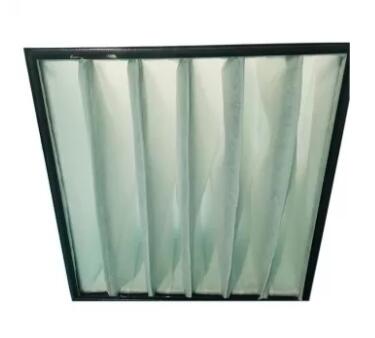Maintaining Optimal Performance: The Maintenance and Replacement Schedule for Rigid Pocket Air Filters
2024-06-15
Proper maintenance and timely replacement of air filters are crucial for ensuring the efficiency and longevity of any HVAC system. Rigid Pocket Air Filters, known for their robust construction and high filtration efficiency, are no exception. To maintain their optimal performance, a well-planned maintenance and replacement schedule is essential. This blog outlines the best practices for maintaining and replacing Rigid Pocket Air Filters to keep your system running smoothly.
Understanding Rigid Pocket Air Filters
Rigid Pocket Air Filters are designed with multiple pockets of synthetic media, providing a large surface area for trapping airborne particles. Their rigid construction allows them to withstand high airflow and pressure without collapsing, making them ideal for demanding environments. However, like all air filters, they require regular maintenance and replacement to function effectively.
Importance of Regular Maintenance
Regular maintenance of Rigid Pocket Air Filters ensures:
- Optimal Air Quality: By consistently removing contaminants from the air, they help maintain a healthy indoor environment.
- System Efficiency: Clean filters reduce the workload on HVAC systems, leading to lower energy consumption and operational costs.
- Prolonged Lifespan: Well-maintained filters and systems experience less wear and tear, extending their service life.
Maintenance Schedule for Rigid Pocket Air Filters
1. Monthly Inspections:
- Visual Check: Conduct a visual inspection of the filters every month. Look for visible dust buildup, damage, or any signs of wear.
- Airflow Measurement: Measure the airflow and pressure drop across the filter. A significant increase in pressure drop indicates that the filter is becoming clogged and needs attention.
2. Quarterly Cleaning:
- Surface Cleaning: If the filter is not yet due for replacement, gently clean the surface to remove loose dust and debris. Use a soft brush or a low-pressure vacuum for this purpose.
- Seal Inspection: Check the seals and gaskets around the filter to ensure there are no leaks or gaps that could compromise the filtration efficiency.
Replacement Schedule for Rigid Pocket Air Filters
The replacement frequency of Rigid Pocket Air Filters depends on several factors, including the environment, usage, and specific requirements of the HVAC system. Here are some general guidelines:
1. Standard Commercial Use:
- Replacement Interval: Typically, Rigid Pocket Air Filters should be replaced every 6 to 12 months in standard commercial settings. This schedule ensures that the filters remain effective in capturing airborne particles and maintaining air quality.
2. High-Dust Environments:
- Replacement Interval: In environments with high levels of dust or pollutants, such as industrial facilities or construction sites, filters may need to be replaced every 3 to 6 months. Frequent inspections are crucial in these settings to avoid excessive buildup that could hinder performance.
3. Critical Applications:
- Replacement Interval: For critical applications, such as healthcare facilities or cleanrooms, filters should be replaced more frequently, potentially every 3 months or as specified by regulatory standards. These environments demand the highest level of air quality, and regular replacements ensure compliance and safety.
Signs That It's Time to Replace Your Filter
1. Increased Pressure Drop: A significant increase in pressure drop across the filter is a clear indicator that the filter is clogged and needs replacement.
2. Reduced Airflow: Noticeable reduction in airflow through the HVAC system suggests that the filter is obstructed.
3. Visible Damage or Wear: Tears, holes, or other visible damage to the filter media necessitate immediate replacement.
4. Odors or Poor Air Quality: Persistent odors or a decline in indoor air quality may indicate that the filter is no longer effectively capturing contaminants.
Conclusion
Maintaining and replacing Rigid Pocket Air Filters on a regular schedule is essential for ensuring optimal performance, efficiency, and air quality. By adhering to a consistent maintenance routine and monitoring the condition of your filters, you can extend the life of your HVAC system, reduce operational costs, and maintain a healthy indoor environment. Whether in commercial buildings, industrial facilities, or critical environments, proper care of Rigid Pocket Air Filters is a small investment that yields significant returns in performance and reliability.



